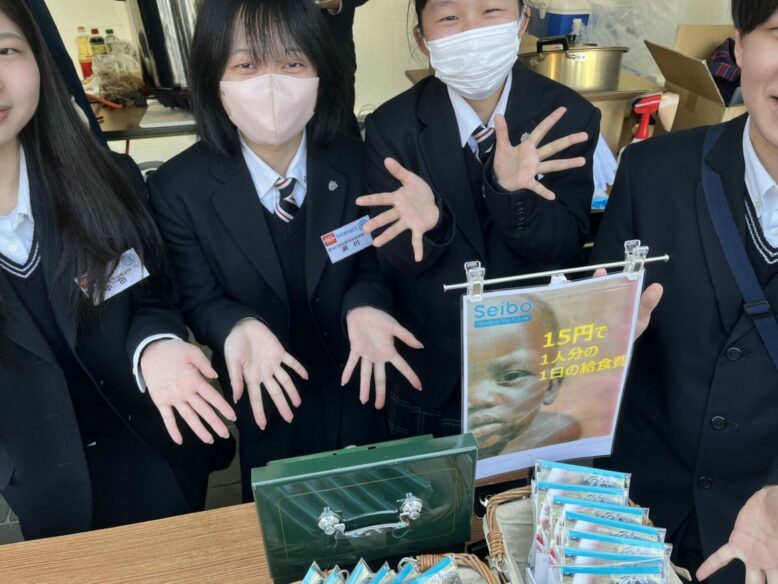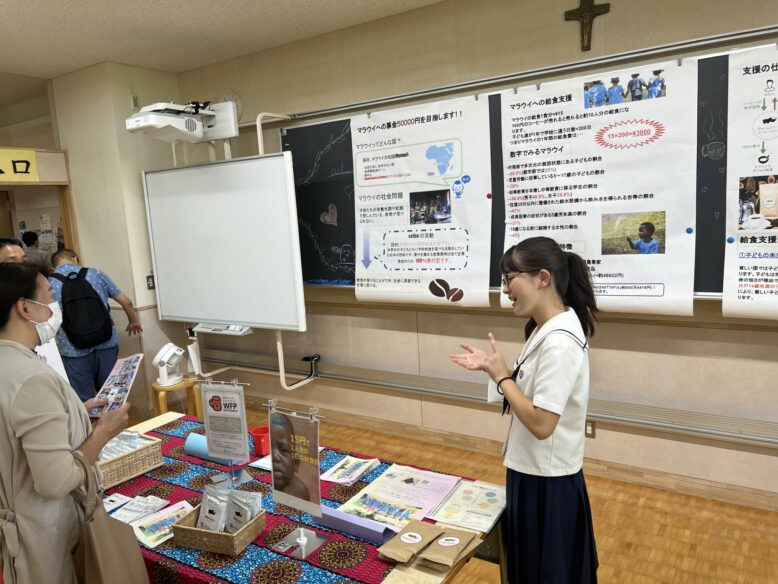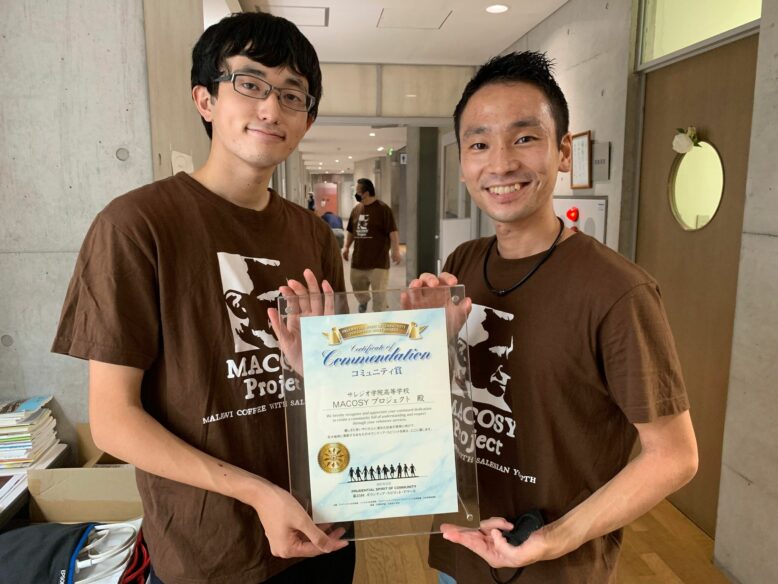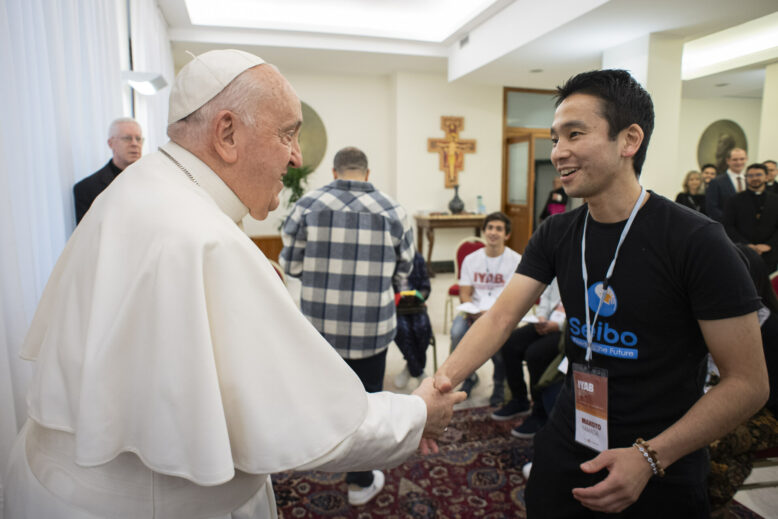
NPO Seibo, a Japanese NPO helping school meals in Malawi with Catholic schools, would like to proceed its activities with the idea from Global Compact on Education(GCE below) published from Pope Francis and UNESCO, which is promoting integral and human centered education.
NPO Seibo has its partnerships with more than 20 Catholic junior high schools and high schools including examples here to develop the ideas of Catholic education inspired by global movements to make students build peace and “an educational process aimed at developing a new universal solidarity
and a more welcoming society”.(GCE Vademecum – ENGLISH,P4)
NPO Seibo agrees with “7 Commitments for the Global Compact on Education”(GCE Vademecum – ENGLISH,P8-9) especially about point 1, “To make human persons the centre” and point 6, “To find new ways of understanding economy and politics”.
We can make Catholic schools in Japan “village of education” as Pope Francis says in GCE with NPO, supportive companies and local churches.(GCE Vademecum – ENGLISH,P33)
In the following, NPO Seibo is going to introduce some examples of implementations of GCE’s ideas with actual Catholic high schools.
You can see that students learn business appoaches with social missions through NPO Seibo and it helps them to get their own ways to implement their missions to realize their future to find their vocations.

Japanense Education System at its Crossroad
From 2002, for Japanese schools, the subject for integrated inquiry learning was introduced and there was a growing need for proactive learning and a broad perspective on society in school education. However, in the actual educational fields, it have been challenging to consider the contents which make students open their eyes into societies and let them learn integrated skills with inquiry moments.
Gradually school sysmtem needs to be updated to help students learn career-related subjects and experience-based learnings.
On the other hand, within the context of Catholic education, it is also interesting to compare the educational crossroad in Japan with developments regarding the priority issues for young people in Vatican. In 2019, Pope Francis announced the “Global Compact on Education,” expressing the intention that education should foster attitudes of peace, justice, and mutual acceptance among people. In the handbook, he uses the term “educational village,” emphasizing the need to collaborate with society, be open to many people, and develop education centered around humanity.(GCE Vademecum – ENGLISH,P4-5)

Reality of Japanese Catholic Schools and Its Needs Collaborating with NPOs
In the context mentioned above, what kind of system is necessary to maintain the identity of a Catholic school while continuing education? Until now, religious education may have been introduced by the church or religious orders, with teachers providing education in general subjects and topics for extracurricular activities. However, in this situation, religious education may not have permeated among the teaching staff, and there may be limitations to the scope of teachers’ activities to connect with society outside of the school. There are no longer priests or sisters to deliver religious education and teachers do not have much time and occasions to know about what is happening outside of the schools.In addition, the number of Catholic teachers is small so that few people know about the situations of Catholic churches, locally and globally.
That is why NPO such as NPO Seibo is indispensible for implementing the idea of GCE, Catholic Schools being educational villages to open young people into society.
NPO Seibo’s Activities to implement GCE with Catholic Schools
The Japanese non-profit organization Seibo has been providing support for school meals in Malawi, Africa, since 2016, and as part of this support, they handle Malawian fair trade coffee.
By collaborating with the activities of this organization, Catholic schools act as an intermediary presence for education to go out into society. Moreover, the involvement of a third organization, the NPO, creates a connection to the practical pastoral fields in the church and contributes to the bonding of evangelical activities. In addition, there is a collaborative efforts with business. The NPO Seibo receives support from Mobell, UK telecom company, for staff salaries, operating expenses, etc., and the money obtained through sales of coffee as donations is entirely directed towards supporting school meals in Malawi. By learning from such business frameworks and involvements of Catholic schools as charity partners, opportunities to connect with society are created through collaboration with organizations such as companies and NPOs.
These activities embody “global villages” to let students know about society and economical system of it, then gradually know about ecological system among them such as where coffee comes from or where farmers are working. These insights bring the idea of “Laudato Si”(especially on its chapter six, “ECOLOGICAL EDUCATION AND SPIRITUALITY”) from Pope Francis inspiring GCE too.

(a student group named “Catholic Research Group” got volunteer award at a competition)
Some actual examples from Japanese Catholic High Schools
Because of the volume of the article, we cannot introduce all the examples of activities. However, you can see some of them from here to implement the ideas of GCE in Japan.
(See : http://www.charity-coffee.jp/en/learning-and-exploring-with-malawi-coffee)
Finally NPO Seibo would like to say thank you for this opportunity to introduce our activities with inspiration from GCE.
Hope this article helps well for educational developments for all the countries.
Our Vision in 2024
NPO Seibo is going to collaborate with Salesian Media Company, Don Bosco Sha and continue our researches into GCE and implement it into some case studies.
Also, we are now translating the vademecum of GCE and finilizing it soon.
We plan to release the finalized version by September 2024.
You are more than welcome to get contacted with us from here about further reseach information and collaborations.
※Small Notes :
The director of NPO Seibo is Makoto Yamada, also working for International Youth Adviosory Body in Dicastery of Laity, Family and Life in Vatican.



